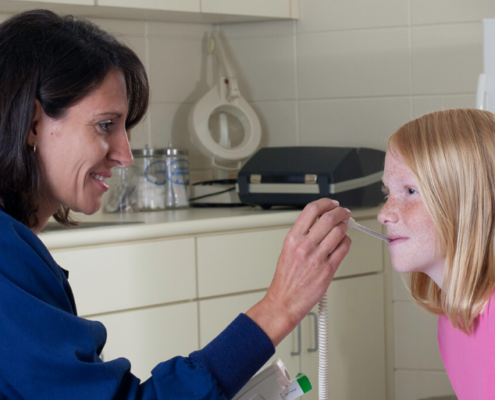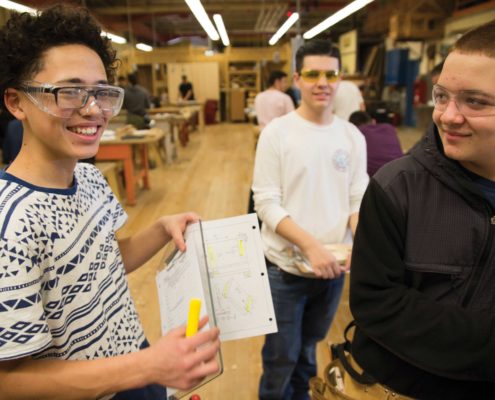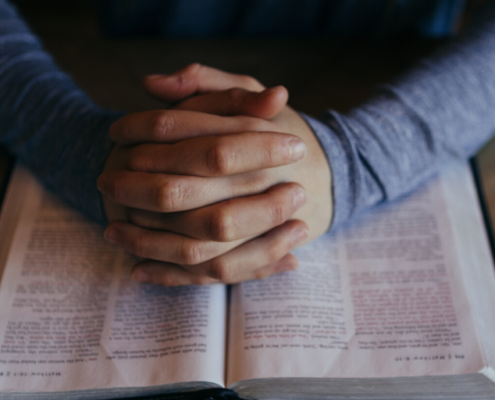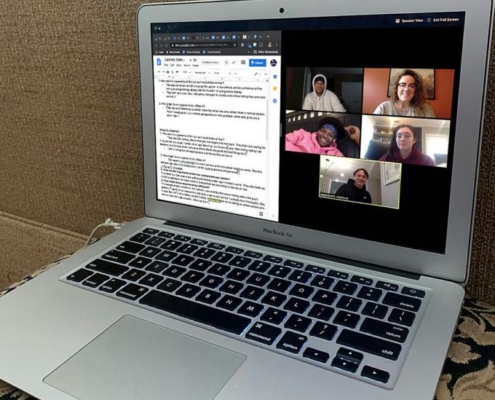
Earning Full Credit: A Toolkit for Designing Tax-Credit Scholarship Policies (2022 Edition)
This report shows that education tax credits grew increasingly popular in 2021, with four more states enacting programs. There are now 28 tax-credit scholarship (TCS) programs in 23 states, and they serve more than 325,000 students.

Modeling an Education Savings Account for Massachusetts
This report finds that Massachusetts provides fewer options for students to be educated outside their assigned school districts than most other states do, and educational savings accounts (ESAs) offer an effective tool for giving students additional opportunities. Author Cara Candal proposes two potential ESA programs for Massachusetts.

Bad IDEA: How States Block Federal Special Education Funding to Private and Religious School Students
This report finds that two states and three school districts around the country for which data are available appear to be out of compliance with provisions of the federal Individuals with Disabilities Education Act (IDEA) that require provision of equitable, publicly funded special education services to students in private schools, after a $3.8 million settlement was reached in Massachusetts for failure to comply.

Earning Full Credit: A Toolkit for Designing Tax-Credit Scholarship Policies
Tax-credit scholarship (TCS) policies create an incentive for taxpayers to contribute to nonprofit scholarship organizations that aid families with tuition and, in some states, other K–12 educational expenses. This paper explores the central design features of TCS policies—such as eligibility, the tax credit value, credit caps, and academic accountability provisions—and outlines the different approaches taken by the TCS policies in each state. The paper also offers suggestions regarding each feature for policymakers who want to design a TCS policy that most likely to succeed at its central purpose: empowering families to provide their children with the education that works best for them.

Wise and Humane: Private School Nursing in Massachusetts
0 Comments
/
Private and parochial school students in Massachusetts have been denied well over $10 million in school nursing services to which they are entitled under state law.

No IDEA: How Massachusetts Blocks Federal Special Education Funding for Private and Religious School Students
Over the past dozen years, thousands of private and religious school students in Massachusetts have been denied hundreds of millions of dollars’ worth of special education services to which they are entitled under federal law.

Cristo Rey Schools: A Model of 21st-Century Catholic Education
This paper examines Cristo Rey schools, why they work, how they work and what parts of their education/business design can be successfully transferred to other Catholic high schools. It will look at the Cristo Rey Network, a cooperative organization formed to standardize the Cristo Rey approach, offer resources to the individual schools and help promote the spread of Cristo Rey schools to cities that can support them.

The Healing Hand: Modeling Catholic Medical Vocational-Technical Schooling
This study explores whether medical vocational-technical education could be a tool to help Boston-area Catholic schools address declining enrollment and also provide economically disadvantaged students with skills that are in high demand among employers.

Homeschooling: The Ultimate School Choice
This report recommends that states do more to acknowledge the…

Survey of Summer Enrichment Programs at Independent and Parochial Schools in Massachusetts
A survey of more than 70 Massachusetts private and parochial schools found that most offer academically-oriented summer programs, which have been found to prevent summer learning loss and can help close the achievement gap among student groups. The survey is the first of a three-part study that will yield a comprehensive guide to summer enrichment programs in the commonwealth.

School Vouchers in Washington, DC: Lessons for Massachusetts
"School Vouchers in Washington, DC: Lessons for Massachusetts" was presented by Patrick Wolf in 2013.

“And You Shall Teach Them Diligently”: The History and Status of Jewish Day Schools in Massachusetts
Beginning in the late 1930s, the confluence of a number of social, ideological, religious, and demographic factors led to the rise of Orthodox day schools in Boston and elsewhere. In the ensuing decades, the Jewish community migrated to the Boston suburbs and even further to the west.

Rhode Island Jewish Day Schools and Scholarship Tax Credits
This is the third in a series of Pioneer Institute policy briefs on scholarship tax credit programs. The first, in 2007, was a groundbreaking study of scholarship tax credit programs in Florida, Minnesota, and Arizona. The second report, published in 2010, built on that research in assessing Rhode Island's Corporate Scholarship Tax Credit (CSTC) program, which became law in 2007. That study provided a review of the CSTC program's legislative history, program design and impact and offered recommendations to policymakers based on Rhode Island's experience.

Four Models of Catholic Schooling in Massachusetts
Thought leaders in education, especially in Massachusetts, rarely acknowledge the precedent that Catholic education sets and the model that it has long provided in offering high quality educational options to students of all backgrounds. This could be because many Catholic schools serve poor and minority students with great success, thus revealing the comparatively low quality of too many public schools that do not.

The Anti-Aid Amendments and School Choice
"The Anti-Aid Amendments and School Choice" was presented by Michael Wolf in 2011.

Be Not Afraid: A History of Catholic Schooling in Massachusetts
The overall aim of this policy paper is not only to reveal the urgency of the problem in Catholic education; it also strives to explain why Catholic schools in Massachusetts and in the city of Boston should be considered essential partners in education. It does so by presenting academic data on the successes of Catholic schools in the Archdiocese of Boston and the state and nationwide; it makes comparisons to surrounding public school systems, such as the Boston. Finally, this paper outlines current efforts on the part of the Catholic community and the Archdiocese of Boston especially, to reverse the discouraging trend of Catholic school closures in Boston and beyond. The report concludes by providing recommendations for the perpetuation of Catholic schools in Massachusetts.

Massachusetts Private School Survey: Gauging Capacity and Interest in Vouchers
This paper takes up the practical question of whether sufficient private school seats would be available for a voucher initiative to get off the ground in Massachusetts. To collect the necessary data, Pioneer Institute designed and conducted a survey of the 524 private, K-12 non-special education schools in Massachusetts. One hundred ninety-four schools serving a total of 50,435 K-12 students responded to the survey, representing 37 percent of all K-12 non-special education private schools in Massachusetts and approximately 43 percent of private school population.
